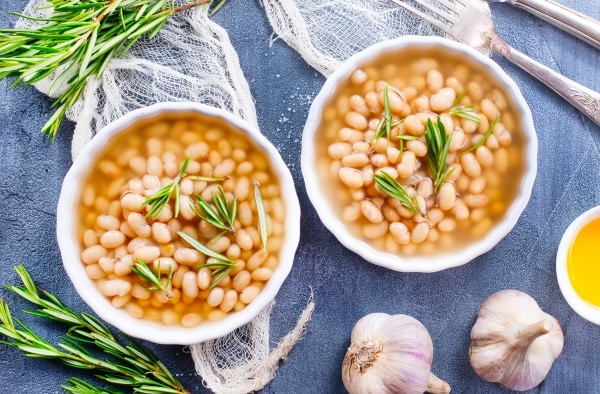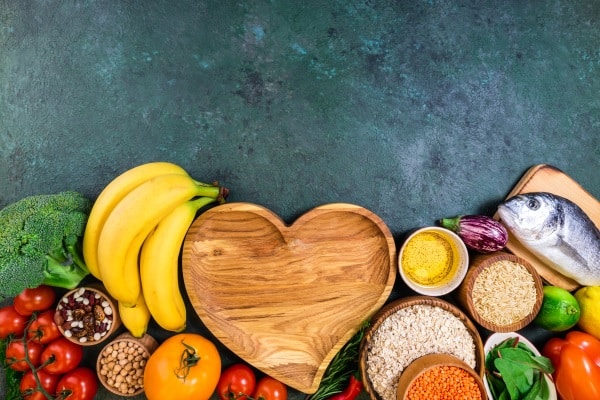Heart disease remains a leading cause of death worldwide, claiming millions of lives each year. While genetics and lifestyle factors like lack of exercise play a role, what you eat can be a significant contributor to heart health. This article is here to explore some of the specific foods and drinks that are often culprits in the development of heart disease. Armed with this knowledge, you can make more informed choices about your diet. From the fats that clog your arteries to the sugars that spike your blood pressure, understanding what goes into your body is the first step toward a healthier heart.
Contents
- The Science Behind Heart Disease
- Saturated And Trans Fats: The Offenders In Plain Sight
- Sugary Delights With Bitter Consequences
- Salt: A Silent Contributor
- The Alcohol Paradox
- Caffeine: A Double-Edged Sword
- The Hidden Dangers Of Processed Foods
- Tips For A Heart-Healthy Diet
- Avoid These Foods And Drinks For A Healthier Heart!
- Related
The Science Behind Heart Disease

Heart disease isn’t an overnight occurrence; it’s a gradual process influenced by various factors, including diet. Cholesterol levels, blood pressure, and inflammation are key indicators of heart health. Foods high in saturated fats, trans fats, and sugars can elevate these markers, putting you at greater risk. It’s not just about avoiding “bad foods”; it’s also about understanding how these foods interact with your body’s physiological processes to contribute to heart disease.
Understanding the science behind heart disease can empower you to make better dietary choices. For instance, LDL cholesterol, often termed as ‘bad cholesterol,’ is known to form plaque in the arteries, leading to atherosclerosis. Similarly, high blood pressure can strain the heart and damage the arteries, acting as a precursor to heart disease. Foods high in salt and unhealthy fats can exacerbate these conditions, making diet an essential factor to monitor.
Saturated And Trans Fats: The Offenders In Plain Sight

When it comes to dietary villains, saturated fats and trans fats top the list. Found in foods like fast food, red meat, and dairy products, these fats can significantly elevate your LDL cholesterol levels. High LDL cholesterol is a known risk factor for developing heart disease, as it contributes to arterial plaque formation, which can lead to blockages and heart attacks.
Numerous studies have established a link between saturated and trans fats and heart disease. For example, research shows that replacing just 5% of your caloric intake from saturated fats with unsaturated fats can reduce the risk of heart disease by up to 25%. The message is clear: cutting down on foods rich in saturated and trans fats can be a lifesaver.
Sugary Delights With Bitter Consequences

Sugar may sweeten your life momentarily, but its long-term effects are anything but. Consuming foods and drinks high in sugar can lead to weight gain, one of the risk factors for heart disease. Moreover, sugary foods often displace healthier options that provide essential nutrients, thereby indirectly contributing to poor heart health.
The term “empty calories” aptly describes foods high in sugar. These foods provide a quick burst of energy but lack essential nutrients, leading to increased calorie intake without any nutritional benefit. Over time, this can result in obesity, high blood pressure, and elevated blood sugar levels, all of which are stepping stones to heart disease.
Salt: A Silent Contributor

Salt is a staple in most kitchens, but its excessive consumption can have dire consequences for heart health. High salt intake is directly linked to elevated blood pressure, a significant risk factor for heart disease. Processed foods, canned soups, and even some breads can be surprisingly high in salt. The American Heart Association recommends no more than 2,300 milligrams a day and an ideal limit of 1,500 milligrams per day for most adults.
Being mindful of salt intake involves more than avoiding the salt shaker. Many foods contain “hidden” salt, including some that may not even taste particularly salty. Reading food labels can help you become aware of how much salt you’re consuming. Opt for fresh fruits and vegetables, and when you do choose processed foods, look for those labeled “low sodium” or “no salt added.”
The Alcohol Paradox

Alcohol consumption presents a complex picture when it comes to heart health. While some studies suggest that moderate drinking might have certain cardiovascular benefits, excessive alcohol use is undoubtedly harmful. High levels of alcohol consumption can lead to high blood pressure, heart failure, and even stroke. Drinks with high sugar content, like certain cocktails, add another layer of risk.
The key is moderation. If you do choose to consume alcohol, it’s crucial to stick to the recommended guidelines—up to one drink per day for women and two for men. Exceeding these limits can have a cascade of adverse effects on your heart health, including elevated triglyceride levels, arrhythmias, and an overall higher risk of heart disease.
Caffeine: A Double-Edged Sword

Caffeine is another substance that has a complicated relationship with heart health. On the one hand, moderate coffee consumption has been linked to a lower risk of heart disease in some studies. On the other hand, excessive caffeine can lead to temporary spikes in blood pressure and may contribute to the development of arrhythmias or irregular heartbeats.
If you’re a coffee aficionado or energy drink enthusiast, knowing your limits is essential. The FDA recommends a maximum of 400 milligrams of caffeine per day, roughly the amount in four cups of brewed coffee. Exceeding this limit can lead to a range of heart-related issues, including increased heart rate and higher blood pressure. Therefore, it’s advisable to monitor your caffeine intake carefully.
The Hidden Dangers Of Processed Foods

Processed foods are convenient, but they come with a host of health risks, including a higher likelihood of heart disease. These foods often contain a cocktail of artificial additives, preservatives, and high levels of sugar and salt. All these ingredients can contribute to elevated blood pressure, high cholesterol, and obesity.
Being aware of the pitfalls of processed foods can guide you toward healthier options. Whole, unprocessed foods like fruits, vegetables, and lean meats are not only more nutritious but also less likely to contribute to heart disease. When you do opt for processed items, make sure to read the labels carefully. Look for options that are low in sugar, salt, and artificial additives to minimize the risks to your heart.
Tips For A Heart-Healthy Diet

Switching to a heart-healthy diet is not about depriving yourself but about making smarter choices. Incorporating more fruits, vegetables, and whole grains can make a significant difference in your heart health. These foods are rich in essential nutrients and fiber, which can help regulate blood pressure and cholesterol levels. Replacing red meat with lean protein sources like fish and chicken can also contribute to a healthier heart.
It’s also crucial to stay hydrated, but choose your beverages wisely. Water is the best option, but herbal teas and limited amounts of natural fruit juices can also be part of a heart-healthy diet. Avoid sugary drinks and excessive amounts of caffeine. Remember, a balanced diet is key, and it’s always a good idea to consult with a healthcare provider for personalized advice.
Avoid These Foods And Drinks For A Healthier Heart!
In the quest for a healthier heart, knowledge is your most potent weapon. Understanding the impact of foods and drinks on heart health enables you to make informed choices. While it’s essential to be cautious of saturated fats, sugars, and excessive salt, it’s equally important to focus on what you should eat. Opt for a balanced diet rich in fruits, vegetables, and lean proteins. Your heart will thank you!


